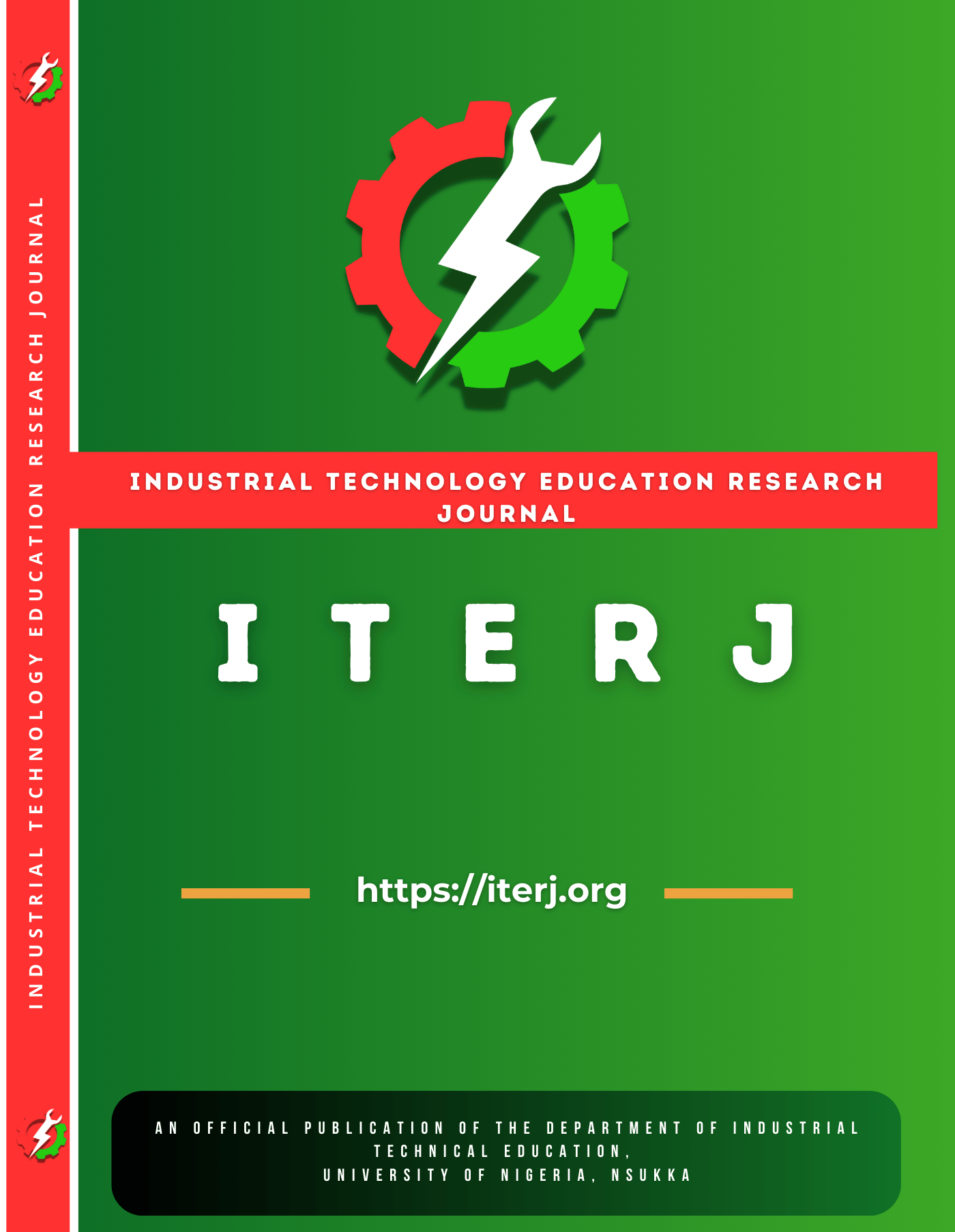Psychological Empowerment Moderates between Work Engagement and TurnoverIntention of Electro-Mechanical Technologists in Universities in South East, Nigeria
Keywords:
turnover Intention, empowerment, workers, engagement, organisationsAbstract
The study investigated the moderation of psychological empowerment on work engagement and turnover intention of electro-mechanical technologists in universities in Southeast Nigeria. Four research questions guided the study, while three hypotheses formulated were tested at a 0.05 level of significance. The study adopted a correlational research design, and the population for the study was 89 electro-mechanical technologists. The instrument for data collection was the "Psychological Empowerment, Work Engagement, and Turnover Intention of Electro-Mechanical Technologists Questionnaire (PEMWETIQ)." The instrument was face-validated by three experts, and its internal consistency was determined using the Cronbach Alpha reliability method, yielding an overall reliability coefficient of 0.91. Data collected were analyzed using the Pearson Product Moment correlation method to answer the research questions, while linear and multiple regression analyses were conducted to test the hypotheses. The findings of the study revealed that (i) a relationship exists between psychological empowerment and work engagement of electro-mechanical technologists, (ii) a relationship exists between psychological empowerment and turnover intention of electro-mechanical technologists, (iii) a relationship exists between work engagement and turnover intention of electro-mechanical technologists, and (iv) psychological empowerment moderates the relationship between work engagement and turnover intention of electro-mechanical technologists. It was recommended that the psychological empowerment of electro-mechanical technologists in Nigerian universities should be improved through workshops and seminars.








